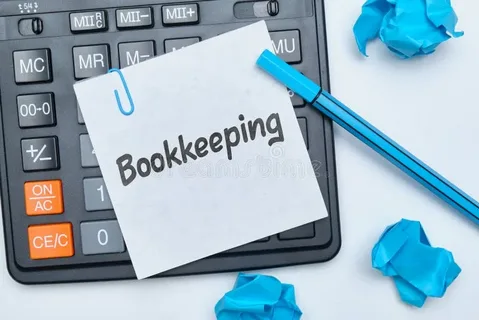If you’re running a business in the UK in 2025—whether it’s a bustling e-commerce brand, a cosy café in Cornwall, or a growing startup in Manchester—you’ve probably realised that bookkeeping is no longer just about “keeping the books.” It’s about staying compliant, understanding your numbers in real-time, and making sharper decisions in a fast-moving market.
The good news? Bookkeeping services in the UK have come a long way. Thanks to tech-driven platforms and tighter accounting standards, professional bookkeepers can now do much more than enter invoices and reconcile bank accounts. They can help you stay on top of tax deadlines, manage cash flow, and even spot financial red flags before they become major issues.
Here’s why investing in a reliable bookkeeping service in 2025 is no longer optional—it’s a smart move for growth, sanity, and survival.
What Exactly Does a Bookkeeping Service Do in 2025?
In simple terms, bookkeeping is the process of recording, organising, and maintaining financial transactions. A professional bookkeeping service will typically handle:
- Sales and purchase invoices
- Bank reconciliations
- Payroll data preparation
- VAT returns (especially under Making Tax Digital)
- Monthly or quarterly financial reports
- Expense tracking
- Software integration with platforms like Xero, QuickBooks, FreeAgent, or Sage
But in 2025, many UK bookkeeping services are offering advisory add-ons, helping business owners understand their numbers, forecast revenue, and make tax-efficient decisions.
Why It Matters More Than Ever
There are several reasons why bookkeeping has become front and centre for UK businesses this year:
1. Making Tax Digital (MTD) Expansion
If you thought MTD was just for VAT, think again. From April 2026, Making Tax Digital for Income Tax Self-Assessment (MTD for ITSA) will hit self-employed individuals and landlords earning over £50,000. But in preparation, 2025 is the year to get your books in shape.
Professional bookkeepers are helping sole traders and limited companies get MTD-ready by integrating cloud software, automating record-keeping, and ensuring everything is submitted on time.
2. Increased HMRC Scrutiny
With HMRC cracking down on errors and late filings, especially in the wake of COVID-era support schemes and fraudulent claims, having clean, accurate books can keep you out of trouble. A qualified bookkeeper will spot inconsistencies before HMRC does—and save you from unexpected tax bills or fines.
3. Rising Operating Costs
Inflation may have cooled compared to 2023 highs, but operating costs remain elevated. As of mid-2025, UK small business energy prices are still up by around 12% year-on-year, and the National Living Wage rose to £11.44 per hour in April. Good bookkeeping helps you see where your money is going, identify inefficiencies, and cut back without guesswork.
Hiring a Bookkeeping Service vs. Doing It Yourself
Sure, spreadsheets and receipt shoeboxes still exist—but they’re not going to cut it in 2025. DIY bookkeeping may save you a few pounds upfront, but it often leads to stress, mistakes, and missed opportunities later.
Here’s what you get with a professional service:
- Accuracy: Clean, well-structured records ready for your accountant
- Time saved: More hours to focus on growing your business
- Peace of mind: Fewer last-minute tax scrambles
- Better insights: Monthly profit-and-loss statements, cash flow analysis, and trend reports
And with pricing starting as low as £60 to £150/month for microbusinesses, it’s more affordable than you might think.
Choosing the Right Bookkeeping Service in the UK
There are thousands of bookkeeping providers out there—from local sole traders to nationwide cloud-based firms. When choosing, look for:
- ICB or AAT certification
- Experience with your industry
- Software compatibility (Xero, QuickBooks, etc.)
- Transparent pricing
- Real human support—not just chatbots
If you’re an e-commerce seller, for example, choose a bookkeeper who understands platforms like Shopify, Amazon, or Etsy. If you run a construction business, find someone who gets CIS deductions and job costing.
Cloud Bookkeeping: The 2025 Standard
Manual ledgers are long gone. In 2025, cloud-based bookkeeping is the norm. Most services now use software that:
- Syncs directly with your bank
- Scans and categorises receipts via mobile apps
- Lets you collaborate with your bookkeeper in real time
- Gives you 24/7 access to your financial dashboard
Not only does this cut down on errors, but it also means you can make business decisions with real-time data—not two months after the fact.
Final Thoughts
In 2025, running a business is tough—but your bookkeeping doesn’t have to be. With all the regulatory changes, economic pressures, and digital tools available, hiring a professional UK bookkeeping service is one of the smartest moves you can make.
It keeps your business organised, your finances clear, and your stress levels down. And let’s face it: staying on top of your books is one of those things that’s easy to put off—until it comes back to bite you.
So if you’ve been winging it, now’s the time to level up. Whether you’re a freelancer, a limited company, or somewhere in between, the right bookkeeping service in uk will help you keep calm, stay compliant, and grow with confidence.

